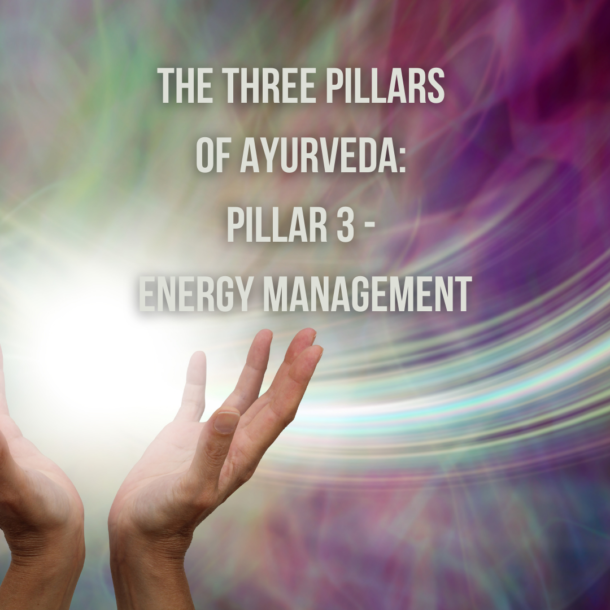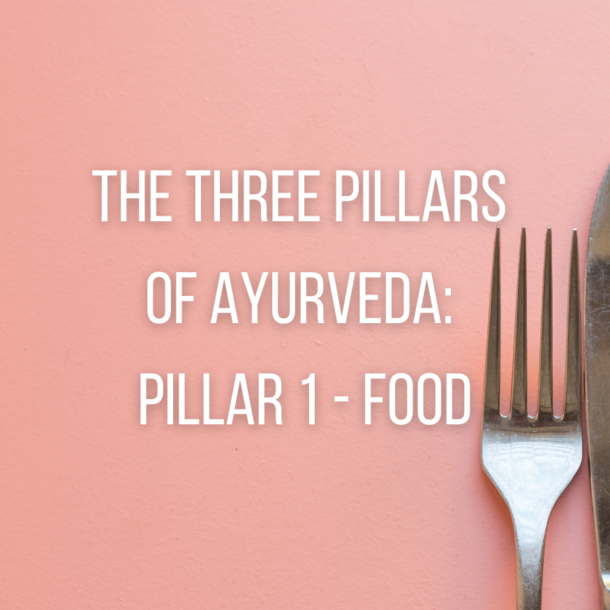
The importance of Nidraa – The Pillar of Sleep
Sleep, like diet, is key to optimum health.
When we get a good night’s sleep, we feel much more focused and energetic the next morning. Our eyes are brighter, and our skin is clearer. We’re much more likely to stick to our schedule, eat a better diet, and be able to handle every challenge the day throws at us.
But when we sleep poorly, the next day is probably going to be difficult too. We feel tired and sluggish, and even the simplest tasks will seem like a chore. We’ll have problems concentrating, we’ll push things off until another day, and our mood will be snappy and irritable. We’re much more likely to overeat and avoid exercise, and the cumulative effect is we’ll be much more prone to sickness and disease.
Sleep is essential because it’s the time when our body repairs and heals itself.
It’s also the time when our mind and emotions can rest, find balance, and process the events of the day.
Unfortunately, for most of us living in the Western world, bad sleep is usually the norm.
Sleep & The Ayurvedic Clock
From the moment we are born, our body has a natural rhythm. It’s called the ‘circadian rhythm’, and the word circadian derives from the Latin phrase “around a day” which probably gives you a clue to what the circadian rhythm does.
The circadian rhythm is the internal clock that governs our 24-hour sleep-wake cycle. It’s especially influenced by light, which is why we’re naturally programmed to wake up when the sun rises, feel tired when it sets, and fall asleep when it gets dark. All organisms have a circadian rhythm, including plants and flowers. Before modern life disrupted our sleep-wake cycle by bombarding us with all different types of pressures and stresses and sensory overloads, our ancestors happily followed their circadian rhythm for thousands of years. Now, that’s not so easy.
This is where Ayurveda can help if we train ourselves to follow the Ayurvedic Clock.
According to the Ayurvedic Clock, our day is divided into six four-hour periods. Each of those periods is dominated by one of the three doshas.
2-6 am is Vata dosha time. If you’re an early riser, you’ll already know how good it feels to wake up before the sun rises and know how much you can accomplish at the very start of the day. That’s because waking up before 6 am keeps you in line with your Vata dosha, and vata governs all the movement in your mind and body. You’ll feel more energetic and creative, you’ll think more clearly, and your metabolism will operate more smoothly.
6-10 am is Kapha dosha time. Kapha controls your body’s structure, your weight and growth, joints and tissues, which is why this is the prime time to enjoy some exercise and eat a light breakfast.
10 am-2 pm is Pitta dosha time. As pitta is the fire element, you won’t be surprised to learn that this is the period when you can be most productive and tackle the most difficult mental and physical tasks. Your digestive system is strongest at noon, so this is the best time to eat lunch.
2-6 pm, and we’re back in Vata dosha time. If possible, use this period to undertake more creative, problem-solving tasks, and make plans for the following day. Preferably, you should eat dinner at 5 pm.
6-10 pm is when our Kapha dosha takes charge, and we begin to wind down at the end of the day.
10 pm-2 am; we should sleep during these times, so the heat of the Pitta dosha can digest our food, replenish our system, and assist in the elimination of toxins. Our skin and organs repair, our mind and nervous system calms.
Dosha-related sleep imbalances
If any of your doshas fall out of balance, your sleep will almost certainly be disturbed.
Vata dosha
If you’re not able to sleep because your mind is so busy you can’t control your thoughts or you can’t stop dwelling on the events and emotions of the day, your Vata dosha is most likely out of balance. Or, if you manage to go to sleep but your sleep is so shallow and restless that you still wakeup tired, that’s a vata imbalance as well.
The best ways to combat it are:
- Eat more of the foods that will balance your Vata dosha (see my last blog, The Pillar of Food.)
- Make sure you eat dinner before 7 pm at the latest, so it has time to digest before going to bed.
- Avoid too much stimulation before going to bed (i.e. don’t drink caffeine or alcohol, limit physical activity, don’t use electronic devices -phones, tablets, etc. - and switch off the TV at least a half-hour – preferably more – before bedtime.)
- Take a warm bath with rose and jasmine essential oils.
- Massage your scalp, hands, and feet.
- Drink warm milk with a dash of nutmeg
- Go to bed before 10 pm, preferably by 9.30 pm.
- Switch off your mind; if your thoughts become busy, gently remind yourself that bedtime is not the time to solve your problems. It might also help if you use a ‘body scan’ technique to mentally check in on and relax each part of your body, from the top of your head down to your toes, consciously letting go of the tension.
Pitta dosha
If you fall asleep quickly, but then wake up in the very early hours and find it almost impossible to go back to sleep again, that’s probably due to a pitta disorder. Emotional trauma can unbalance the pitta, too.
The best ways to combat it are:
- Eat a more pitta-focused diet, including sweet and juicy fruits (see my last blog, The Pillar of Food.)
- Try to eat your largest meal at lunchtime but eat well enough at dinnertime that you won’t feel hungry before going to bed. Don’t skip meals and eat at the same time every day.
- Avoid too much stimulation before going to bed (i.e. don’t drink caffeine or alcohol, limit physical activity, don’t use electronic devices - phones, tablets, etc. - and switch off the TV at least a half-hour – preferably more – before bedtime.)
- Go to sleep before 10 pm.
- Use pitta balancing aroma oils before going to bed; in a diffuser (as aromatherapy) or on your pillowcase, or your wrist. Fennel, vanilla, lime or ylang-ylang all have soothing pitta dosha benefits.
- Massage your navel and temples with ghee, which alleviates pitta because it’s cool and sweet and hydrates the skin.
- Taking an Ayurvedic supplement like Ashwagandha may help because it’s an adaptogen that can help your body manage stress and fight symptoms of anxiety and depression.
- Turn the heat down in your bedroom or open the window slightly to keep the sleeping space cool.
General advice for supporting the Pillar of Sleep
Get as much natural daylight as possible and limit your exposure to artificial lighting, especially artificial light sources that are directly next to you or above you.
Limit caffeine consumption to the morning; stop drinking it from around 2 pm, or at least seven hours before going to bed.
Keep alcohol and nicotine consumption at a minimum.
Dim your lights in the evening or use table lights and wall lights to reduce brightness in the room.
Avoid exposure to screens – especially phone, pc, laptop, and tablet screens – after 6 pm. The glare is too stimulating. Use the NightShift mode on smartphones to cut out blue light.
Avoid taking naps during the day because they disturb your circadian rhythm. Instead, take deep breaths to reinvigorate your body or take a brisk walk in the fresh air.
Meditation helps. Take a look at my blog, ‘How meditation can strengthen your immune system’ for more advice, including some easy meditation practices.
Whenever you’re feeling tired, or wired, or if you wake up in the middle of the night with your mind clattering at a million miles an hour, practice alternate nostril breathing to calm yourself, reduce your vata, and balance the left and right hemispheres of your brain: Sit comfortably and close your eyes. Close your right nostril and inhale through your left, then close your left nostril and exhale through your right, then (with your left nostril still closed) inhale through your right nostril, close your right nostril and exhale through your left nostril. Continue this technique gently and steadily for ten minutes.
Alternatively, try Bhramari breathing. Sit comfortably with your eyes closed or, if open, fixed gently on a point in front of you, inhale naturally and then slowly intone ‘Om’ or ‘Aum’ on the out-breath, repeating this cycle for five minutes.
When you observe the pillar of sleep and follow the doshas as closely as possible through your sleep-wake cycle, you’re far more likely to stay happy, healthy, and balanced in your body and mind. When you combine the pillar of sleep with the pillar of food and the pillar of energy management (which I’ll talk about next time), you will be very close to achieving optimum wellness.
I hope this blog will help you enjoy a better night’s rest.If you have any questions, or if you’d like to know more about how living an Ayurvedic lifestyle can help you achieve perfect health, please don’t hesitate to get in touch.
To your enduring health and happiness in Ayurveda.







